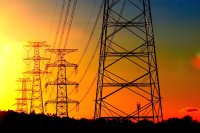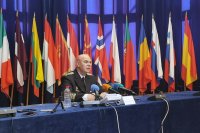
The European Parliament on July 9 adopted the report on the progress of the Republic of North Macedonia toward EU accession with a strong majority of 461 votes. The report was approved along with three amendments that removed references to "Macedonian identity and language".
Bulgaria’s Ministry of Foreign Affairs welcomed the decision, describing it as a reaffirmation of the European Parliament's role as an impartial and independent institution committed to monitoring reform progress—reforms which must remain the primary focus of the authorities in Skopje. The official statement further emphasised that the Republic of Bulgaria continues to support the European perspective of all Western Balkan countries, based on objective membership criteria and the strict application of the principle of own merits.
Ivaylo Valchev, MEP from the European Conservatives and Reformists Group:
"Common sense prevailed. We are far from treating this as some kind of football match where someone has won and flags are to be waved. What this Parliament demonstrated is that it deals with serious and pragmatic matters, and refuses to get involved in ideological disputes or to gift rhetoric for domestic political use to any country."

Andrey Kovatchev, MEP from the European People’s Party (EPP):
"I believe that such texts involving recognition of identity and language would have set a dangerous precedent. It is not the job of the European Parliament—this is not an Academy of Sciences, nor a historical or linguistic institute—to issue certificates that could later be misinterpreted as historical validation. Unfortunately, we saw this attempted by the Prime Minister of North Macedonia, who in recent weeks focused solely on declaring daily that the European Parliament would recognize a centuries-old identity and language—clearly with the intent of provoking us.The greatest guarantee for the swift integration of the Republic of North Macedonia into the EU is the full implementation of the 2022 Council Conclusions, which include the incorporation of Bulgarians not only in the preamble but throughout the Constitution where communities are listed. This, along with implementation of the bilateral Treaty and accompanying Protocols, forms part of the EU negotiation framework accepted by North Macedonia. That is the true guarantee.
They have requested an additional guarantee—and we gave it to them. This is the unanimous decision of the Bulgarian National Assembly, which states clearly that Bulgaria has no further conditions—neither now nor in the future—beyond those European conditions enshrined in the Council's 2022 conclusions and the negotiation framework, which includes the 2017 Treaty signed between Mr. Borissov and Mr. Zaev, as well as the two Protocols. We hope there will be a third and a fourth protocol, since the Treaty requires annual intergovernmental meetings to foster good neighborly relations and friendship.
Our outstretched hand remains extended, as it always has been—and always will be. We sincerely hope this moment of confrontation will be overcome. As Mr. Valchev rightly noted, such a situation should never be repeated."

Ilhan Kyuchyuk, MEP from "Renew Europe":
"My view is that if a country has political consensus—and by that I mean a genuine will to move forward—there will always be forces capable of leading it in that direction, toward achieving its goal. If the goal is for North Macedonia to become part of the EU, then both the opposition and those in power will eventually sit at the same table and make it happen.""However, if there are divergent views, if old issues are constantly brought back to the table or their resolution is postponed, there will inevitably be a multitude of other excuses, always seeking to place the blame elsewhere rather than within the country itself."
"As rapporteur, my consistent appeal has been this: the path of North Macedonia is the one it has chosen—toward the European Union. But that path is not guaranteed. It requires daily effort from everyone to ensure that the benefits of EU membership are tangible and that Macedonian citizens truly feel like Europeans."

 Economy Minister Orders On-Site Checks at Electricity Suppliers Following Surge in Complaints
Economy Minister Orders On-Site Checks at Electricity Suppliers Following Surge in Complaints
 Sunken Fishing Vessel off Sozopol Shows No Breaches or Holes in the Hull, Navy Chief Says
Sunken Fishing Vessel off Sozopol Shows No Breaches or Holes in the Hull, Navy Chief Says